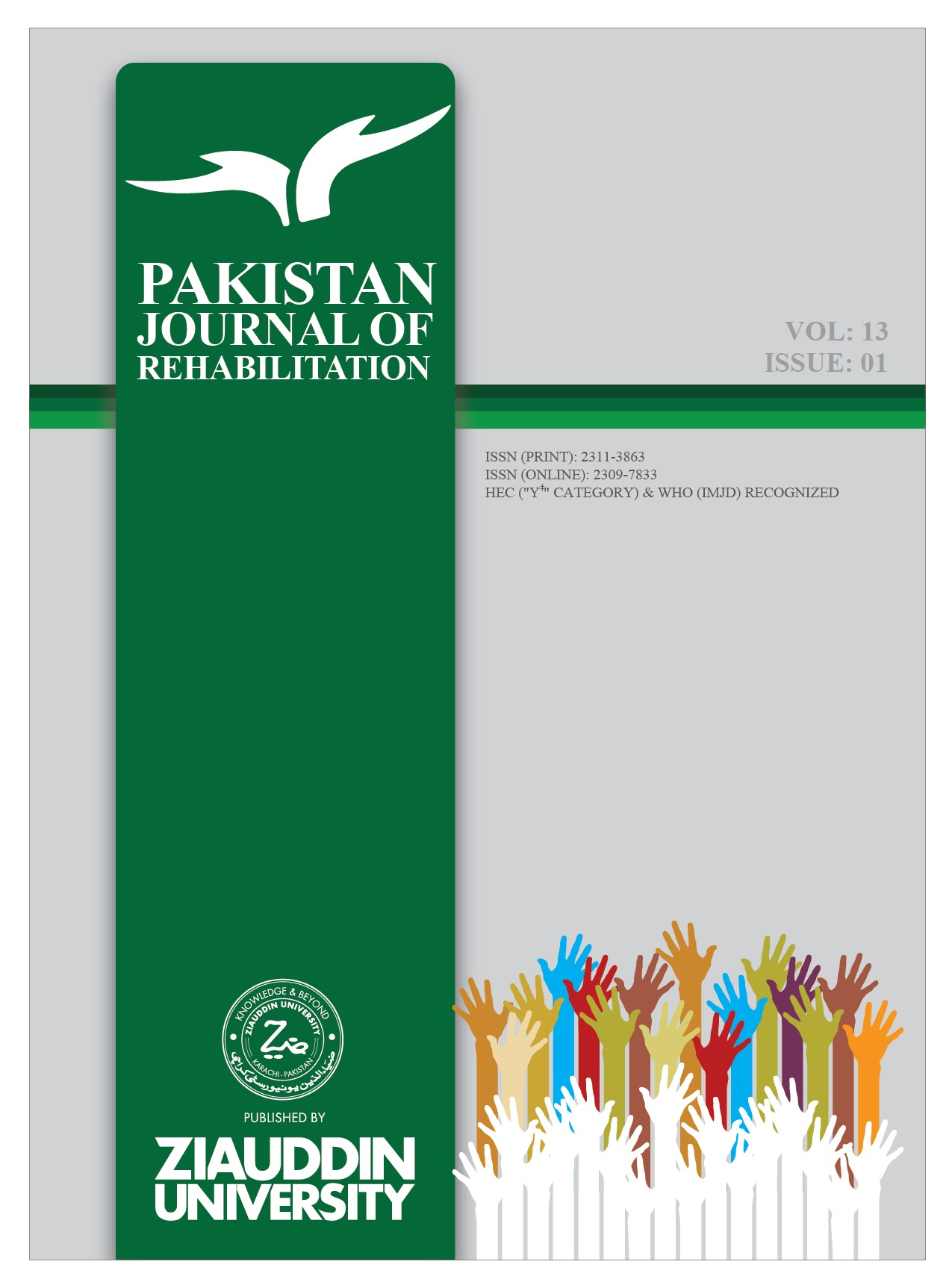12
1
2023
1707976069400_3604
1-2
http://ojs.zu.edu.pk/ojs/index.php/pjr/article/download/2136/720
Received: Wed, Nov 02, 2022 Accepted: Tues, Nov 29, 2022 Published: Tues, Jan 03, 2023
DOI: 10.36283/pjr.zu.12.1/001
EDITORIAL PAKISTAN JOURNAL OF REHABILITATION
VOLUME 12 (ISSUE 1), 2023 Page no.
TOWARDS INTEGRATING REHABILITATION INTO HEALTH SYSTEMS THROUGH PROFESSIONAL REGULATION
Rachael Lowei
Strengthening rehabilitation in health systems and integrating rehabilitation across all levels of care depends on a mix of strategies, however all depend on an appropriately trained, resourced and organized workforce. Indeed, among the ten areas for action described in the World Health Organization 2030 initiative is developing a strong multidisciplinary rehabilitation workforce that is suitable for country context, and promoting rehabilitation concepts across all health workforce education.
The rehabilitation workforce is constantly evolving as it strives to provide safe practices and treatment choices based on the best available evidence to improve function, promote independence and help people reach their maximum potential. However, barriers to this evolution include a lack of well-resourced training programs, variations in the competencies expected within the standard entry-level curriculum, limited opportunities for continuing professional development, geopolitical instability, competing demands for limited health budgets and persistent de-prioritization of rehabilitation.
The passing of the Allied Health Professionals Council Bill by the Senate in February 2022 is promising progress for professional regulation and development of the rehabilitation workforce in Pakistan. Regulation aims to protect the public by ensuring that only practitioners who are suitably trained and qualified are able to practice in that profession and provides a mechanism to assure competent and ethically safe services to the public. The expected introduction of minimum standards will impact education programmes that need to upgrade their curricula and introduction of professional development requirements will require practitioners to evidence ongoing learning activities.
Given the barriers that exist to the delivery of adequate training programmes and professional development activities, the rehabilitation professions will need to quickly adapt to comply. Professionals associations should assess their strategies and use this as an opportunity to create
The Ziauddin University is on the list of I4OA, I4OC, and JISC.
This is an open-access article distributed under the terms of the Creative Commons Attribution License (CC BY 4.0).
Conflict of Interest: The author (s) have no conflict of interest regarding any of the activity perform by PJR.
leadership, build membership and garner respect, potentially providing opportunities for members to satisfy professional development requirements. Many academic institutions will need to upgrade their curricula to meet the new requirements, which may also present human resource challenges. Clinics and hospitals should consider providing opportunities for professional growth through in-person training activities, this would be a socially responsible move.
This progression will present a burden, particularly given the infrastructure necessary for implementation. However, COVID-19 has highlighted the adaptability and versatility of rehabilitation professionals who took up the challenge of learning new skills, working on the frontline and seeking new ways to maintain patient care. As this happened the potential of the internet became apparent, it became central to learning, sharing, and communicating.
As Pakistan prepares to adapt to the requirements of the new Allied Health Professions Council we are ready to help people adapt. Professional associations and academic institutions are encouraged to use the collective expertise of those that offer assistance such as World Physiotherapy, the World Federation of Occupational Therapists and the Learning, Building, Acting for Rehabilitation in Health Systems (ReLAB-HS) project. Whereas those offering education and professional development are advised to maximise efficiency by introducing hybrid training (a mix of online and in-person) that use online resources to supplement their own initiatives. The blended use of available online resources will create time and cost efficiency towards regulated professions that take front stage to highlight our knowledge and skills that are key to improving the health and functioning of the nation, and to be advocates towards integrating rehabilitation into health systems.
i Physiotherapist, Co-Founder and Director Physiopedia, Sheffield Hallam University, France (0000-0001-7698-8746)
ISSN PRINT: 2311-3863 3 ISSN ONLINE: 2309-7833
| Article Title | Authors | Vol Info | Year |
| Article Title | Authors | Vol Info | Year |
